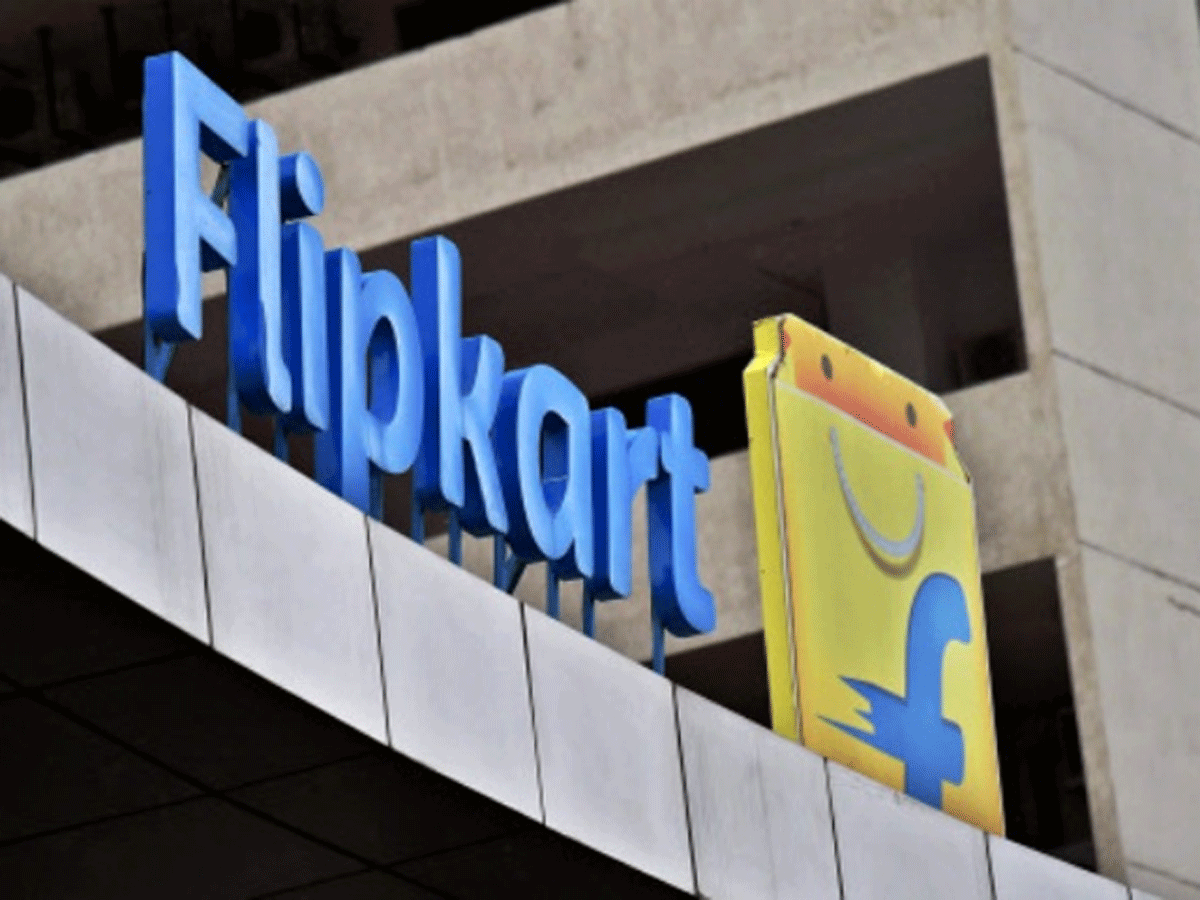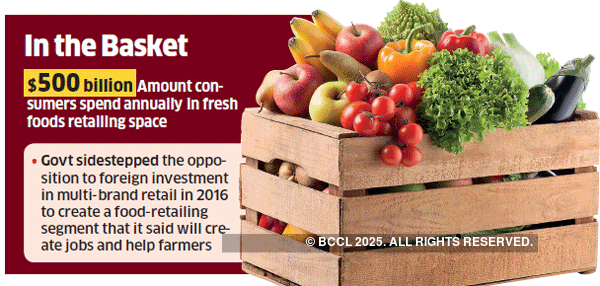 BENGALURU: Walmart-owned e-commerce company Flipkart has started a pilot project in Hyderabad to deliver fresh fruits and vegetables in partnership with vendors on its marketplace, three people directly aware of the matter told ET.
BENGALURU: Walmart-owned e-commerce company Flipkart has started a pilot project in Hyderabad to deliver fresh fruits and vegetables in partnership with vendors on its marketplace, three people directly aware of the matter told ET.This has come at a time when the homegrown e-tailer waits for internal processes to be complete before it applies for a food retail permit via a newly registered entity which will enable Flipkart to eventually own food inventory as per government’s FDI policy, these people said.
“Even though Flipkart (in the past) has steered away from venturing into the fresh fruits and vegetables space directly given the complexity of the business’ supply chain and regulatory compliances, with the entrance and aggressive push by its largest competitors, Amazon.com and Reliance Industries, it is no longer a segment that can be ignored,” a top executive at the company said requesting anonymity.
“The licence application is in process,” he said. For now, Flipkart has partnered with Waycool Foods & Products as well as other sellers to launch operations, sources said. “It is likely that a part of this supply chain for its partners will be powered by Ninjacart in future,” said one person.
In December, Flipkart and its US-based parent jointly invested an undisclosed sum in Ninjacart, a fresh produce supply chain startup.
However, once the licence is obtained, Flipkart has made internal plans to venture into the business directly and open physical stores for its grocery and fresh foods business, although this may be at least six months away, two of the sources quoted earlier in the story confirmed to ET.

Experts say, winning the grocery and fresh foods retailing space is the next big battle between Flipkart, Amazon and Reliance, with offline presence being a key strategy to drive adoption. “Grocery is one of the key categories at Flipkart... The pilot project with fresh food in Hyderabad aims to get a better understanding of consumer behaviour and the supply chain that we are developing to address the demand for this category,” the company said.
In October, Flipkart registered an entity, Flipkart FarmerMart, with an authorised equity capital of Rs 1,845 crore, in line with the government’s foreign direct investment (FDI) policy which allows 100% FDI in food retail for food produced and manufactured in the country. The FDI in food retail licence is granted by the Department for Promotion of Industry and Internal Trade (DPIIT).
Amazon has already committed to invest $500 million over five years to sell third-party and own private label food products, sourced and packaged locally, through both online and offline stores via subsidiary Amazon Retail India. It also owns a stake in Aditya Birla Group’s food and grocery retail chain MORE, and Kishore Biyani-led Future Retail, which runs the Easy Day and Big Bazaar chains.
Reliance Industries has started its web portal Jiomart with early pilots in Mumbai. The largest online player in this space, however, continues to be Alibaba-backed BigBasket, but the e-tailer has yet to establish an offline presence.
In India, Walmart does not sell directly to consumers and is an organised wholesaler, or cash-and-carry operator, that sells merchandise to local kirana (corner) stores, hotels and catering firms. Food is the only segment where e-tailers can sell directly to consumers.
Wow what a great blog, i really enjoyed reading this, good luck in your work. Online Vegetables Delivery in Hyderabad
ReplyDeleteThis comment has been removed by the author.
ReplyDelete